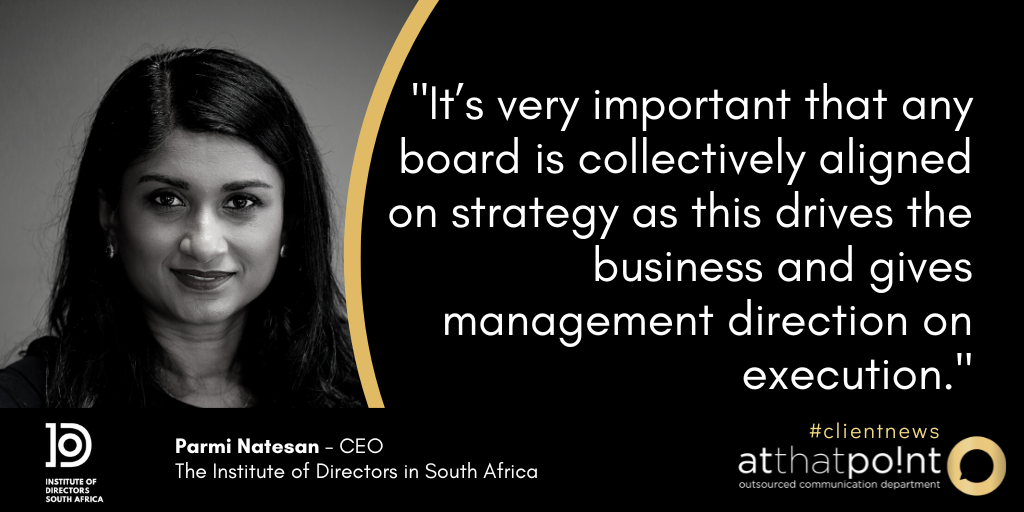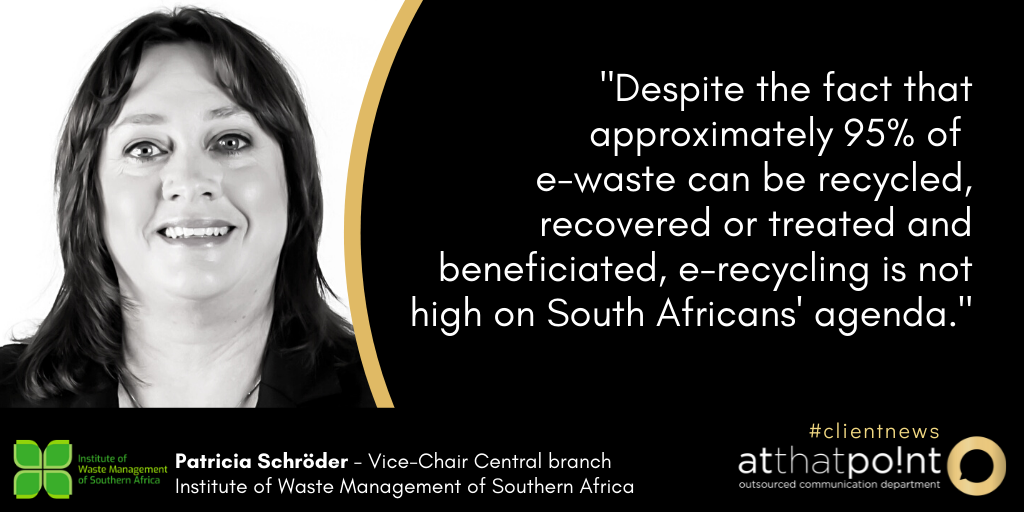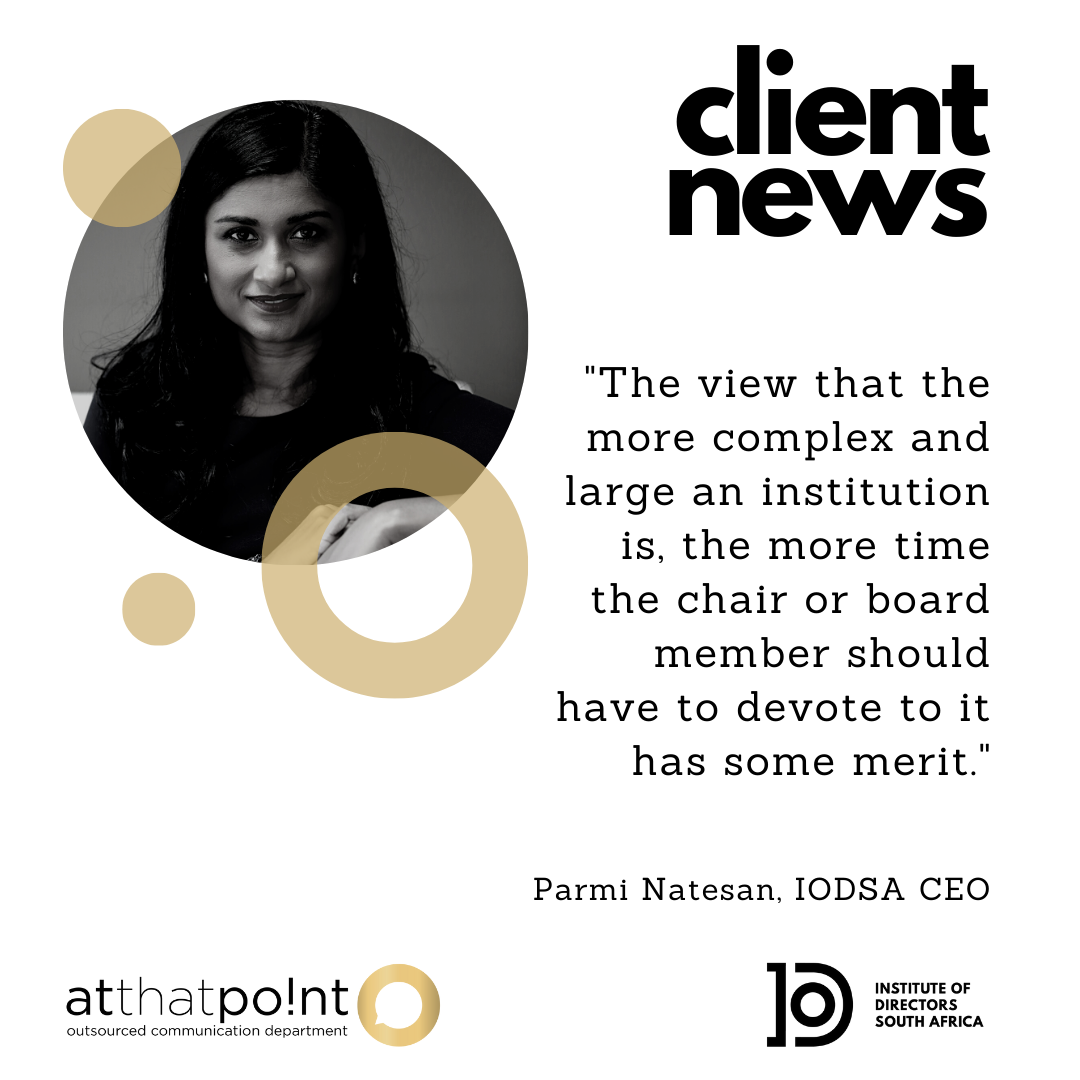|
A recent editorial in Business Day raised a perennial governance hot potato: just how many boards should a single individual be able to serve on? The tenor of the article was that the current chair of Capitec should focus on that role, and risked being distracted by chairing two other boards as well.
“The view that the more complex and large an institution is, the more time the chair or board member should have to devote to it has some merit,” says Parmi Natesan, CEO, the Institute of Directors in South Africa. “For example, the decision by the current chair of Eskom to resign as chair of a large bank to concentrate on leading the power utility’s board was probably a wise move. “However, because organisations are of varying sizes and degrees of complexity, and individuals have different capacities, the IoDSA does not believe it makes sense to attempt to create a hard-and-fast rule about how many boards an individual should be able to chair or, indeed, sit on.” She argues that it remains up to each organisation to determine how much time each board member’s role requires, and to ensure that current or prospective board members can commit to that. The individual director’s ability, experience and capacity would also be factors to consider. In addition, board chairs and directors (especially those serving on key board committees) need to have the flexibility to ramp up the time they devote to their work during periods of crisis. Individuals who are fully committed will not have that flexibility. In view of the growing realisation that governance plays a crucial role in ensuring corporate sustainability, investors are starting to take note of how many boards non-executive directors serve on. In the United Kingdom and United States, institutional investors (often via proxy services) oppose the appointment of directors with more than five board seats. In India, by contrast, the legal limit of directorships is 20. King IV addresses the problem by recommending transparency, advising independent non-executive directors to detail their other board commitments and to provide a written undertaking that they have enough time to discharge their board responsibilities (Principle 7, Recommended Practice 18). “Given the importance of the director’s role, it might make sense for boards to formalise the minimum amount of time that each role requires. The overriding principle is that the issue needs to be thoroughly ventilated and minuted to ensure there is consensus about what the role demands, and whether each director can give the time needed,” she concludes. “The Nominations Committee also plays a key role in monitoring the attendance and involvement of board members, and should act swiftly where there are capacity concerns.” ENDS MEDIA CONTACT: Stephné du Toit, [email protected], 084 587 9933, www.atthatpoint.co.za For more information on the IoDSA please visit: Website: www.iodsa.co.za Twitter: @The_IoDSA LinkedIn: Institute of Directors South Africa Company Page Facebook: Institute of Directors South Africa
0 Comments
 Events at Huge Group, as reported in the media, hold important governance lessons for all organisations, says Parmi Natesan, CEO: the Institute of Directors in South Africa (IoDSA). Reports stated that at a recent board meeting, the chairman and two other directors resigned with immediate effect, apparently over disagreements relating to corporate strategy. “It’s very important that any board is collectively aligned on strategy as this drives the business and gives management direction on execution. It’s therefore not surprising that vehement disagreement on strategy would lead to a parting of the ways,” comments Ms Natesan. “Another obvious takeaway is that the departure of three experienced non-executive directors at once is a major loss of institutional knowledge for any company, something that it will take a long time to recover from—a well-thought-out board succession plan is clearly vital.” When the news of the resignations broke, the simultaneous appointment of three substitute directors was also announced. On the one hand, this may indicate that a succession plan was indeed in place, or it may have been just quick action, Ms Natesan believes. “Whilst the speed of finding replacements is to be applauded, one has to consider whether this was a missed opportunity for better demographic diversification on the board. After the new appointments, the board’s composition remains all male and majority white—this despite both the JSE Listings Requirements and King IV referring to targets and reporting on racial and gender diversity on boards,” she says. There is widespread agreement that a diverse board does more than tick boxes and create a good impression. For example, 86% of respondents in a recent research survey believe that board diversity contributes to better board performance, while 77% link board diversity and improved corporate performance. Overall, 73% of respondents noted that their company was taking action to increase board diversity. The research also indicates that investors are starting to ask questions about board diversity. Globally, just over a third (35%) of investors request such information, with this question most likely to be asked in Europe (43%). Investors are most likely to ask about boardroom diversity in relation to mega-cap (71%) and large cap (57%) companies.[1] “Common sense tells us that the more lenses through which a board can examine the world, the better. There’s also interesting research that links a company’s financial performance and gender and skill diversity on the board,”[2]concludes Ms Natesan. “This is a complex topic, but it’s clear that boards need to investigate it fully and, most importantly, have a succession plan that reflects their conclusions and resulting diversity goals.” [1] Corporate Secretary, “Boardroom diversity: From disclosure to recruitment”, available at https://content.corporatesecretary.com/story/cs-boardroom-diversity-from-disclosure-to-recruitment/page/1. [2] Khaled Hosny, Adel Elgharbawy, “Board diversity and financial performance: empirical evidence from the United Kingdom”, Accounting Research Journal (17 June 2022), available at https://www.emerald.com/insight/content/doi/10.1108/ARJ-02-2020-0037/full/html. ENDS MEDIA CONTACT: Stephné du Toit, [email protected], 084 587 9933, www.atthatpoint.co.za For more information on the IoDSA please visit: Website: www.iodsa.co.za Twitter: @The_IoDSA LinkedIn: Institute of Directors South Africa Company Page Facebook: Institute of Directors South Africa  Cricket South Africa (Cricket SA) has lurched into yet another crisis with the Members’ Council rejecting the interim board’s proposal that the new board be composed of a majority of independent directors. The move by the Council goes against widely-accepted international best practice, including the King IV Code on Corporate Governance, and is probably indicative of the lack of trust between the Members’ Council and the Cricket SA board, says Ansie Ramalho, Technical Facilitator at the Institute of Directors in South Africa and Chair of the King Committee on Corporate Governance in South Africa. “The challenge that Cricket SA faces is common in the non-profit sector, small businesses and even some state-owned entities, where boards are often dominated by representatives of key stakeholders such as donors, communities, beneficiaries or investors. Stakeholder representivity might seem like a good idea as it gives stakeholders a say at the highest level, but in fact it is not ideal,” she explains. “Directors have a primary duty to the organisation itself—in this case Cricket SA—and not to the Members’ Council or other stakeholder groupings. Usually, the interests of the organisation and its key stakeholders are aligned but there are situations in which the short-term interests of a particular stakeholder may conflict with longer-term considerations relating to the organisation’s sustainability. So-called representative directors are often mandated to promote a particular agenda at the board which also increases the potential for conflicts of interests.” For this reason, good governance practice for a company such as Cricket SA would be to have a majority of independent non-executive directors who are better placed to take a more objective view of issues, and to put the interests of the organisation first. This was also a recommendation by the Nicholson Commission of Enquiry in its 2012 report on maladministration at Cricket SA. Ms Ramalho also argues that there is a good case to be made for the appointment of professional, career directors who have the governance and oversight skills necessary to discharge their fiduciary duties competently. The dilemma of non-executive directors is that they do not have the benefit of day-to-day knowledge of the organisation, and thus suffer from a “knowledge deficit” when compared with executives. “Being an expert at wielding the tools of governance and oversight compensates for the asymmetry of information between non-executive directors and executives. Merely representing a stakeholder grouping or having had a successful career as an executive are not in themselves adequate for offering rigorous and objective oversight,” she says. “If the directors are not sufficiently independent and fully qualified to offer oversight and look after the organisation’s long-term interests, the whole system of checks and balances is rendered ineffectual.” Ms Ramalho suggests that, the primary focus of the Members’ Council should be to ensure that Cricket SA has the best possible board, composed of directors with the ability to hold management to account competently and without bias. It is after all ultimately the responsibility of Members’ Council to elect the board members and it is therefore within its power to insist on a rigorous selection process that delivers this outcome. “That is the only way to ensure Cricket SA is governed with its long-term interests—and the interests of the game as a whole—at the forefront,” she urges. |
Archives
July 2024
Categories
All
|


 RSS Feed
RSS Feed